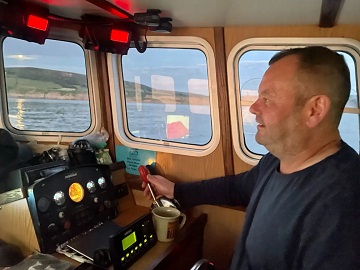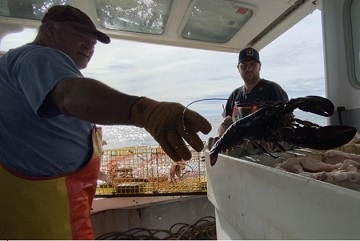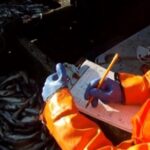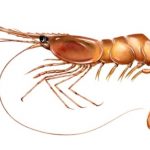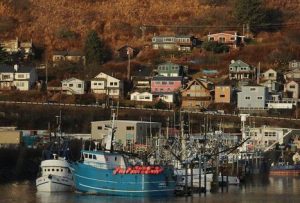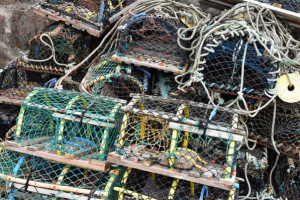Monthly Archives: July 2022
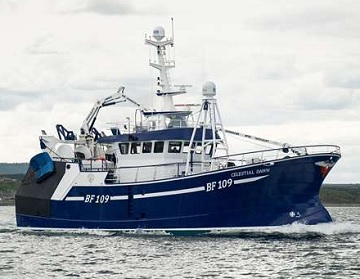
Macduff Shipyards celebrate as newly built vessel is signed over to owners
The Celestial Dawn, BF 109 was designed between Macduff Shipyards and firm Macduff Ship Design and built at the yard’s fabrication hall in Buckie. The brand new fishing vessel is the first of three sister ships with a second boat now under construction and a third due to be built later this year. All three vessels will be built at the yard’s fabrication hall in Buckie, a significant milestone for both the yard and town. Photos, >click to read< 08:13
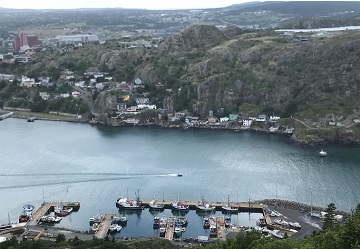
SEA-NL calls for elimination of province’s farcical system of fish pricing before fisheries lost
“There is no point in government being involved in negotiating the price of fish when its appointed panel does not have the power to enforce one price or the other, and its decisions do not result in commercial fisheries,” says Ryan Cleary, SEA-NL’s Executive Director. “The existing system has collapsed with processors refusing to buy for the prices that are set, and inshore fleets remaining tied to the wharf,” he added. “Both sides must stick it out at the negotiating table until a price or contract is hammered out like with any other collective agreement.” >click to read< 16:16
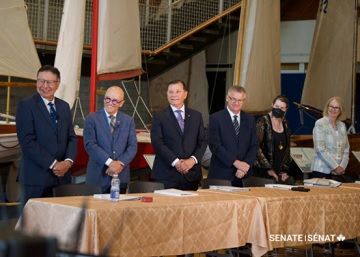
New Report Shows Canadian Government Has Failed Indigenous Fishers
The Standing Senate Committee on Fisheries and Oceans had harsh words for the Canadian federal government. At a meeting this week in Halifax, Nova Scotia, the committee presented its new report, which looked at the implementation of Indigenous rights-based fisheries. Its findings suggest that, despite more than two decades since key precedents were set, the fisheries have not been fully implemented. This has led, the committee stated, to confusion, tension and violence. In Canada’s Atlantic provinces (Nova Scotia, New Brunswick, Prince Edward Island and Newfoundland and Labrador), as well as parts of Quebec, 35 First Nations have a treaty right to fish for a moderate livelihood. >click to read< 14:50

Nuclear is the future – Wind & Solar Debacle Means It’s Time to Bring Small Nuclear Reactors Onshore
SMRs are no pipe dream: 200 small nuclear reactors are presently powering 160 ships and submarines all around the world and have been for decades. What’s on foot is a move to bring those reactors onshore and use them to shore up power grids being wrecked by the chaotic intermittency of wind and solar. STT promotes nuclear power because it works: safe, affordable, reliable and the perfect foil for those worried about human-generated carbon dioxide gas, because it doesn’t generate any, while generating power on demand, irrespective of the weather, unlike the forever unreliable: wind and solar. One of the feeble ‘arguments’ against it, is that nuclear power plants are of such vast scale that they take longer to build than the pyramids of Giza, and cost twice as much. SMR technology takes the sting out of that case. >click to read< 13:16
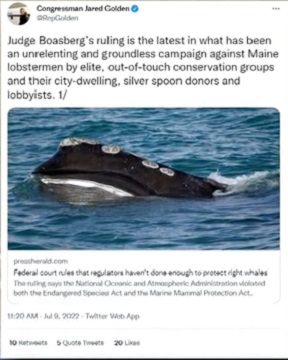
Maine lobster industry braces for tough season after back-to-back legal losses
“We recently got our license to be able to start processing small amounts on site, so that is cooking the lobster and picking out the meat … in hopes of taking out one step,” Jillian Robillard said. A step that she said could give lobstermen another 25 to 50 cents per animal. “That would really be a gamechanger for some of these guys,” Robillard said. “This year has been really tough so far … we’re banking on the fall season to give these guys two-thirds of their income … but with the closures and stuff we’re just not going to see that happen.” The closure she is talking about is the latest development in three lawsuits involving Maine lobstermen. Two of which that have recent rulings within the last week overturned in favor of environmental groups. >click to read< 11:13

RIP Pussen, the feral harbour cat.
For those who have lived and worked on the harbour in Newlyn over the past 10 years, the sight of a black and white feral cat hunting for rats in the rocks by the RNLI boathouse wouldn’t have been a strange sight. She had a great bounty there which kept her fit. But as for her main food supply she depended on the many pigeons that housed in the wall face on the way to the net sheds opposite Trelawney fish shop. It was in this location that I was lucky enough to see her engage in what she did best. I rigged gillnets in the end shed which gave me a front seat to the act. I called her to me almost daily after that but she showed no interest until I saw her pass one day and offered her some fresh ham from my lunch. This she accepted from a distance,,, photos, Freddie Bates, adopted cat companion. >click to read< 10:23

Remembering New Bedford’s1985-86 Fishing Strike
“You fishermen over the years have been screwed royally,” said then-New Bedford City Councilor David P. Williford to a raucous crowd of union fishermen. “But you got sometimes nobody to blame but yourself because you never stuck together. You never had a leader. Well you got one now, and if you don’t stick together this time, you better hang it up.” It’s difficult to imagine America’s top fishing port slowing down for a moment, but in late 1985 the once-unionized seafaring workforce of New Bedford brought operations to a screeching halt when they went on a strike. Then-Mayor John Bullard said at the time that stoppage was costing the industry roughly $1 million per day. >click to read< 08:05
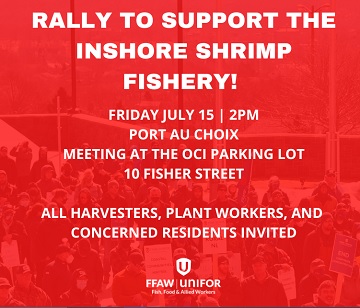
FFAW RALLY NOTICE – PORT AU CHOIX JULY 15
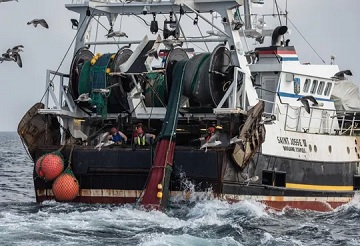
European parliament votes to ban ‘fly shooting’ fishing in part of Channel
While the European parliament does not have the power to ban the fishing method, MEPs said the vote on Tuesday sent an important message to decision-makers about the impact of fly-shooting on coastal fishing communities. The vote on an amendment to the common fisheries policy, involving access to territorial waters, will now be considered by the European Commission, the parliament and EU member states. Last year the UK was accused of allowing vessels using the fishing method “unfettered access” to the Channel without proper assessment of the impact on fish, the seabed or the livelihoods of coastal communities. >click to read< 15:12
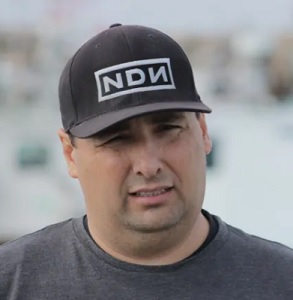
Removing DFO from Indigenous fishery negotiations an ‘integral’ step forward
Chief Mike Sack of the Sipekne’katik First Nation said the report, titled Peace on the Water, validates what he and his band have been saying about their right to fish since they launched a moderate livelihood fishery two years ago. The report calls for negotiations involving the Indigenous fishery to be handled by Crown-Indigenous Relations and Northern Affairs Canada, which Sack described as “the most integral” of the committee’s recommendations. “The treaty fishery model we presented over two years ago now is reinforced by each recommendation from the Senate,” Sack said in a statement. >click to read< 13:52
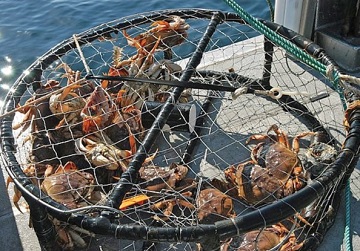
Man whose boat was seized for illegal crab fishing in Burrard Inlet nets further $6,000 fine
Judge Lyndsay Smith handed the fine to Sammy Alvin-Raymond John Williams, 32, of Gold River, B.C., July 13, in North Vancouver provincial court. Smith found Williams guilty in November of several fishing offences including setting gear in Burrard Inlet during a closed time, fishing for Dungeness crab in waters during a closed time, fishing without a licence, and possessing crab in contravention of the Federal Fisheries Act. Fisheries officers netted three men on fisheries charges following a high-speed chase of a fishing boat in Burrard Inlet on the night of March 1, 2020. The trio on board the boat had been fishing at night in the inlet, with no navigation lights on, using unmarked crab traps attached to a line that they pulled up from the bottom of the harbour, including fishing in the path of the SeaBus, a Crown prosecutor said. >click to read< 11:58

Mills & Maine Congressional Delegation Respond to First Circuit Court’s Decision
Portland, Maine – Governor Janet Mills and U.S. Senators Susan Collins and Angus King and U.S. Representatives Chellie Pingree and Jared Golden issued the following statement today in response to the First Circuit Court of Appeals’ decision reinstating a ban on lobster fishing gear in nearly 1,000 square miles in the Gulf of Maine: “Once again, Maine’s lobstermen have been unfairly targeted by a misguided court decision. Today’s ruling fails to acknowledge the substantial steps that Maine’s lobster industry has already taken to comply with gear change rules to protect the North Atlantic Right Whale. We are deeply disappointed and will continue to strongly advocate for our state’s lobster industry.” >link<
Maine politicians blast ‘unfair’ court decision targeting lobster gear – A federal circuit court has reinstated a ban on lobster fishing gear in a nearly 1,000-square-mile area off New England to try to protect endangered whales. The U.S. District Court for the District of Maine issued a preliminary injunction to halt enforcement of the rules. The U.S. Court of Appeals for the First Circuit in Boston vacated that ruling Tuesday. >click to read< 11:09

Fishing vessel crew member alleges inadequate medical treatment after cutting hand with machete
Nicholas A. Lester filed a complaint June 28 in Galveston County 56th District Court against Katie’s Seafood LLC and the F/V Pisces LLC alleging negligence, unseaworthiness and other claims. According to his complaint, Lester was employed by the defendants and was a crew member on the F/V Bottom Line commercial fishing vessel which was operating in the Gulf of Mexico on April 14, 2021. He claims that as he was chopping eels to prep for baiting hooks, he cut his left hand with the machete and began to bleed “profusely.” Lester further claims that he received no assistance from crew members until a half hour later when the vessel’s captain treated his wound with iodine and Gorilla Glue and wrapped it with gauze and electrical tape. >click to read< 08:41

Prince Edward Island: Fishermen wary of new gear mandated by DFO to protect whales
The federal government is making it mandatory for fishing crews to use the new gear as of January 2023. The ropes are designed to break more easily so whales won’t become entangled and suffer injuries if they swim into it. Lobster fisher Charlie McGeoghegan said it’s causing some concern in the fishing community who wonders if the gear is safe to use, if it will be lost more easily and how much it will cost to replace. The P.E.I. Fishermen’s Association asked the Department of Fisheries and Oceans for an exemption for lobster fishers but was denied. >click to read< 07:50
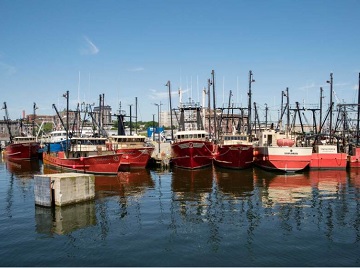
Investigation reveals private equity firms dominate the New Bedford fishing industry
A debate is raging in the local scallop industry about whether fishermen should be allowed to lease their permits. Supporters say the proposal could help fishermen with a small catch share, or those who can’t get out to sea, stay in the business, because they could lease their permit to another captain. Opponents worry it would allow big companies to consolidate the industry and push small fishermen out, similar to what has happened in the groundfishing industry. CAI’s Kathryn Eident talked with Will Sennott, a reporter with the New Bedford Light, about his investigation into permit leasing in the groundfishing industry, and how he found that some of the biggest winners are multinational private equity firms, not small fishermen. >click to read< 16:21
Athearn Marine Agency Boat of the Week: 92′ Rodriguez Shrimper/Scalloper, 3412 Cat
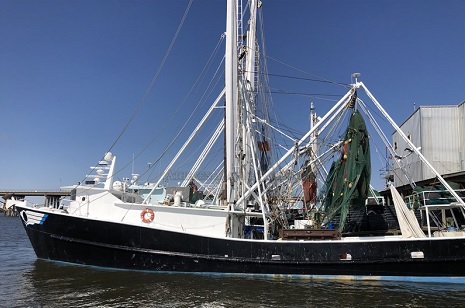 To review specifications, information, and 35 photos’, and video tour, >click here<, To see all the boats in this series >click here< 11:44
To review specifications, information, and 35 photos’, and video tour, >click here<, To see all the boats in this series >click here< 11:44

Government accused of ‘cover up’ over Teesside mass crab deaths
But Defra has insisted joint investigations into the deaths were thorough. Unrest, debate and protests over huge piles of dead crustaceans on Teesside’s coastline have rumbled on since problems first started last autumn at Seaton Carew, South Gare, Redcar, Marske and Saltburn. An algal bloom was deemed to be the likely culprit by a Defra-led study. But this was countered by an independent report by Tim Deere-Jones after he was commissioned by those concerned in the fishing industry. High levels of a chemical pyridine were noted by Mr Deere-Jones’s report. Mr Deere-Jones’ report also said algal blooms did not occur naturally in our coastal waters in October because the temperatures were too low. >click to read< 10:35
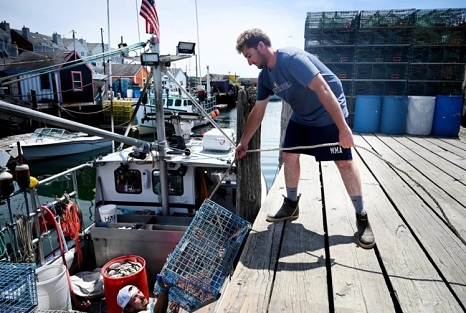
Economic destructive inflation: Falling wholesale prices put squeeze on Maine lobstermen
The price lobstermen got for their catches hovered around $8 a pound in 2021, which they said was one of their best years ever, with a plentiful haul, high prices and stable costs. This year, however, is shaping up to be one of the worst Maine lobstermen have faced in decades, with prices falling to about half of what they were last year. Prices have dropped by half and wholesalers say demand also is down sharply as inflation has weakened the economy and hurt the market for shellfish. With consumers paying high prices to fill up gas tanks and to buy groceries, lobsters are a luxury that 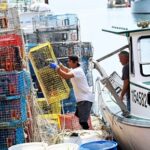 many cross off their shopping lists. Inflation is hitting lobstermen, too, particularly when they fill up fuel tanks before heading out to tend their traps. They say pretty much everything they need costs more this year, from fuel, oil and repairs for their engines to ropes and traps. Bait, too,,, photos, >click to read<
many cross off their shopping lists. Inflation is hitting lobstermen, too, particularly when they fill up fuel tanks before heading out to tend their traps. They say pretty much everything they need costs more this year, from fuel, oil and repairs for their engines to ropes and traps. Bait, too,,, photos, >click to read<
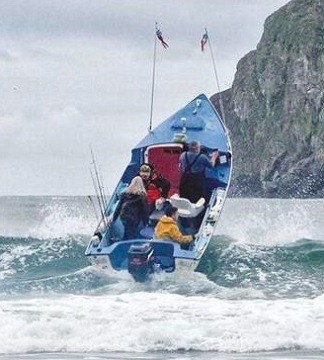
Dory Days 62nd Annual Festival schedule
This year marks the 62nd annual Dory Days Festival and it’s packed with three days of fun for everyone in Pacific City, the quaint destination beach town in south Tillamook County. For those of you joining the parade, this year’s theme is Stars and Stripes. In remembrance of Craig Wenrick, his wife Susie Wenrick, their children Dane, Kirsten, Derek, and Keenan & their family accepts the honor of Grand Marshal. For over 30 years, Craig dedicated himself to bringing the highest quality dory caught seafood to the Oregon Coast. In addition to commercial fishing, Craig was the co-chair of the Pacific City Dorymen’s Association and a familiar volunteer for community organizations. Schedule, >click to read< 08:12
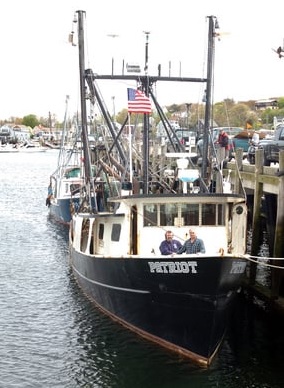
New book explores mystery and legacy of the 2009 F/V Patriot sinking
A newly released book, “The Tragic Sinking of Gloucester’s Patriot” by maritime historian and retired U.S. Coast Guard Capt. W. Russell Webster, sheds light on the mysterious and sudden sinking of the fishing vessel about 15 miles east of Gloucester just after 1 a.m. on Saturday, Jan. 3, 2009. Many in the nation’s oldest seaport still wonder what happened to the Patriot, Webster says, as the sinking resulted in the loss of the vessel’s beloved two-member crew, Capt. Matteo “Matt” Russo, 36, and his father-in-law, Giovanni B. “John” Orlando, 59. Webster takes time to explore the loss the community felt, and he has even included poetry by Gloucester poet John Ronan. Both men were seasoned and safety-conscious commercial fishermen. photos, >click to read< 07:06
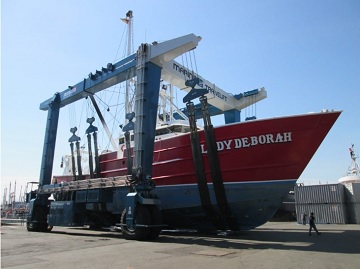
Industrial park board backs proposal for spending Sitka hospital sale proceeds on marine haulout
The board of directors of Sitka’s Industrial Park has lent its unanimous support to a proposal to use proceeds from the sale of Sitka Community Hospital to construct a marine haul out. Directors of the Gary Paxton Industrial Park debated the issue for a half-hour at their monthly meeting on Monday (7-11-22), addressing many questions that are likely to be raised by the public if the question moves to the ballot this fall. Municipal administrator John Leach said the possibilities of growth were significant for hauling larger ships, possibly even Coast Guard Fast Response Cutters, which currently are serviced in Homer and in California. The idea was, “if we build it, they will come.” >click to read< 20:38
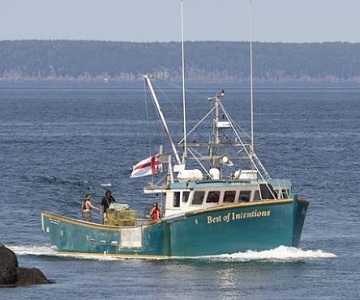
Senate report says government must implement rights-based Indigenous fisheries
A new report from the Senate is calling on the federal government to implement Mi’kmaq, Wolastoqiyik and Peskotomuhkati rights-based fisheries on Canada’s East Coast and overhaul its approach to negotiations. One of the report’s 10 recommendations is that discussions with First Nations be immediately transferred to Crown-Indigenous Relations from the Department of Fisheries and Oceans, which is something Indigenous communities have been calling for. >click to read< 15:45
First Nations shouldn’t have to negotiate with Fisheries and Oceans, committee says – Key to the proposed plan is to sideline DFO and leave it to the Department of Crown-Indigenous Relations and Northern Affairs to negotiate rights-based fishing agreements. DFO could act as advisers. “As long as you both have First Nations fisheries and non-First Nations fisheries under DFO, it’s never going to work,” >click to read<
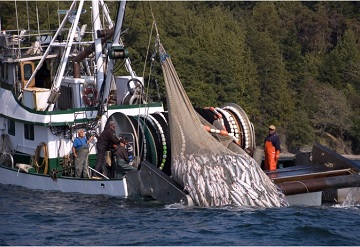
Jury awards $595,000 in damages to Lummi Nation for 2017 fish spill
Cooke Aquaculture accidentally released tens of thousands of nonnative Atlantic salmon in 2017, threatening native Pacific salmon, and the Lummi Nation’s traditional reliance on them. In 2017, a floating industrial salmon farm in the Northwest’s Puget Sound broke loose, releasing tens of thousands of Atlantic Salmon into the ecosystem. The nonnative salmon, raised in crammed industrial scale fish pens and considered a threat to native Pacific salmon, quickly swam throughout the bay. The Washington Department of Ecology later found that the farm owner, Cooke Aquaculture, the largest privately owned salmon-farming agribusiness in the world, had neglected to take care of its equipment. >click to read< 13:43
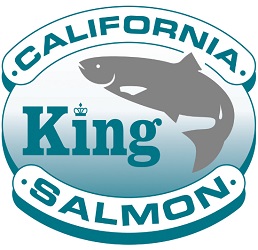
Commercial California King Salmon Season Officially Back in Action
After a recent season break, the 2022 commercial California King salmon season is officially back on, and California’s commercial fishermen are reporting great catches. “Now that the season is open again and the fishing area has expanded, consumers will again see fresh, local California King salmon in their favorite markets,” said David Goldenberg, Chief Executive Officer of the California Salmon Council. The season is currently open now and following a short break mid-month, will resume again at the end of July. Only available May through October, fresh, wild-caught, California King salmon can be found locally at select grocery stores, fish markets, fine restaurants, farmers markets and even direct from fisherman, right off the dock. >click to read< 12:32
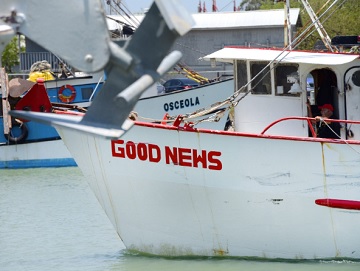
Shrimping industry facing historic challenges
Andrea Hance, executive director of the Texas Shrimp Association, headquartered at the Port of Brownsville, said in April that the high cost of fuel was preventing a lot of boats from going out. The price of fuel has fallen in recent weeks, though in a case of unfortunate timing some owners filled up before prices starting dropping, she said. With a typical fuel tank capacity of 15,000 to 20,000 gallons, 10 or 15 cents either way makes a big difference, said Hance, who owns two shrimp boats with her husband, Preston. One of the boats is in dock for repairs and the other was filled up at $4.40 a gallon of diesel — before it started coming down, she said. >click to read< 10:04
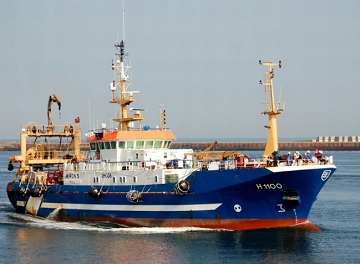
900 tonnes of herring unloaded in Hull as city’s fish industry booms
The boss of a fishing company says he hopes more landings will be possible in Hull after two of the firm’s trawlers arrived in the port to discharge their catch. Between them, sister vessels Wiron 5 and Wiron 6 will unload 900 tonnes of herring over the next few days at the city’s Alexandra Dock. It’s the first time the two Hull-registered trawlers have discharged in Hull side by side and is the culmination of extensive planning by owners North Atlantic Fishing Company, which has an office in Hessle Road. >click to read< 07:50
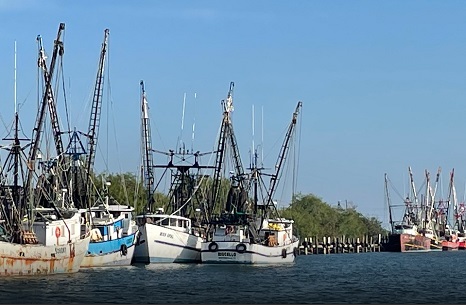
Texas: New shrimp season tangled up in regulations
That plate of fried shrimp people enjoy at a restaurant –whether locally or away from home – could either be taken off the menus or cost a lot more. The tastier Gulf shrimp caught by trawlers off the Texas Gulf Coast from the Brownsville/Port Isabel to the Palacios areas could also be replaced by farmed-raised crustaceans. That’s because this South Texas industry – one of the nation’s largest – is caught in the middle of a crisis caused by today’s U.S. immigration policies and by what is going on in countries south of Mexico. The expected arrival of hundreds of people who traditionally work on the boats, known as shrimp headers, is on halt right now; yet the kickoff of the 2022 season is about two weeks away. >click to read< 17:53

Canned climate official was right, consumers suffer the most
Remember David Ismay? He was the state’s $130,000 a year climate change czar, a mini-John Kerry who was forced to resign after he was inadvertently caught telling the truth. He revealed how the Green anti-fossil-fuel movement wants to punish you to save the planet. Ismay, speaking to a virtual meeting of the Vermont Climate Council last year on gas and oil emissions, said, “Sixty percent of our emissions that need to be reduced come from you – the person across the street, the senior on fixed income.” If that was not damaging enough, he added, “There is no bad guy left, at least in Massachusetts, to point the finger at, turn the screws on and, you know, break their will so we have to break your will. I can’t even say that publicly.” But. you did! >click to read< 14:45






